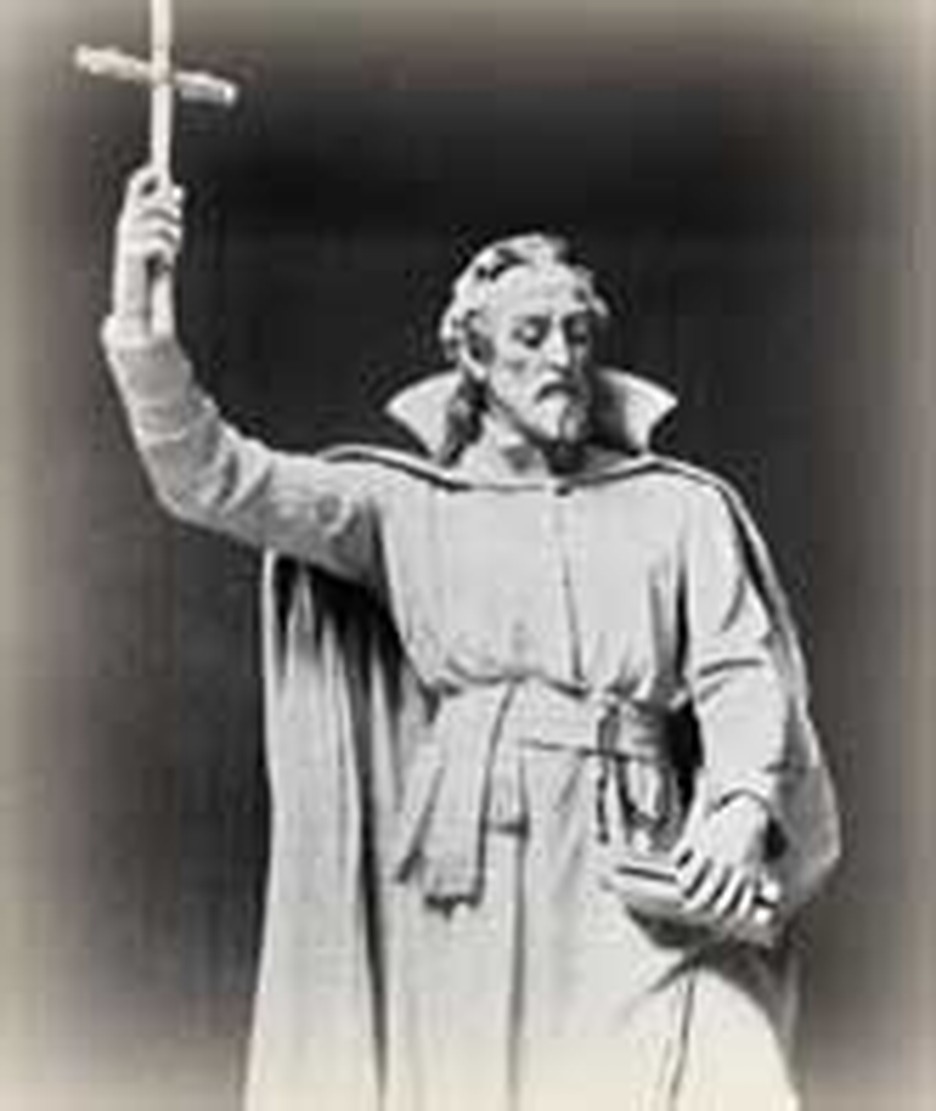
Isaac Jogues wept before the Lord in long hours of prayer, asking God to accept his own life if by yielding it the Indians of North America might be won to Christ. One night he heard what he took to be a word from the Lord, saying: "Your prayers are granted. It will happen as you have asked. Take heart! Be courageous!"
Born in France, he was lured to Canada by the chance to gather a harvest of souls. A Jesuit, he begged for the opportunity and was given it. His master prophesied that he would die nowhere else. He quickly showed he could endure much for Christ and for the sake of the gospel. Contempt, daily threat of death, filthy food, exposure to the elements--these were commonplaces as he worked among the Huron tribes. After several years, when a volunteer was sought for a dangerous mission, he stepped forward.
On this day, August 2, 1643, the party of Huron and Frenchmen with whom Jogues was traveling was ambushed by the Iroquois. Jogues, hidden in tall grass, could have escaped. With his own eyes he had witnessed Indian tortures. No one could have blamed him if he stayed hidden. But "the idea of flight appalled me. Could I...desert my Frenchmen and my poor savages without giving them the aid which the Church of my God had entrusted to me?" It was his responsibility to join them and fulfill his duty as their spiritual guide, no matter what tortures he personally endured.
Jogues stepped from the tall grass and was seized with the rest. Terrible tortures followed. The men were forced to run the gauntlet whenever they entered a different village. Their fingernails were pulled out by the roots and the tender tips bitten again and again. Fire was applied to their bodies. Through it all Jogues maintained his Christian witness. When he urged one young Frenchman to escape, the lad refused. Your fate will be mine, he said, and swore to join the Society of Jesus if he lived.
Eventually Jogues was "adopted" by an elderly native woman. The Iroquois came to respect him. However, it was only fear of White man's reprisals which saved his life. Once he escaped to a Dutch ship. The Indians threatened to kill every Hollander in America if Jogues was not returned. Jogues voluntarily gave himself up rather than risk others' lives. After several months, he was ransomed by the Dutch. He returned to France for a time.
The Pope gave the missionary special dispensation as to the manner of serving the Eucharist with his lacerated hands. Then Jogues himself asked to be allowed to return to the Iroquois who had tormented him and preach the gospel to them. His request was granted. Peace seemed at hand with the Iroquois. But the buried hatchet was dug up. Although admiring his bravery, the Iroquois seized Jogues and one of their braves tomahawked him. Later the murderer was captured and tried by the French. Before the murderer was hung, he converted and took Isaac Jogues as his baptismal name.
Bibliography:
- Campbell, T. J. Pioneer Priests of North America. New York: The America Press, 1913. Source of the Image.
- Daniel-Rops, Henri. Heroes of God. Garden City, New York: Doubleday and Co., 1965.
- Dictionary of Christianity in America. coordinating editor, Daniel G. Reid ; consulting editors, Robert D. Linder, Bruce L. Shelley, Harry S. Stout. Downers Grove, Illinois: InterVarsity Press, 1990.
- Maynard, Theodore. Great Catholics in American History. New York: All Saints Press, 1962.
- Parkman, Francis. The Jesuits in North America in the 17th Century. Boston: Little, Brown, and Co., 1886.
- Scott, Martin J. Isaac Jogues Missioner and Martyr; an adaptation of the original biography of Martin-Shea. New York: P. J. Kenedy & Sons, 1927.
- Various encyclopedia articles.








